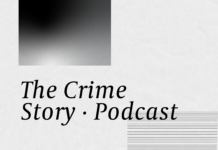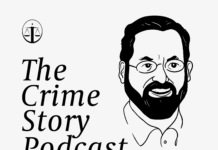“It’s like watching whales discover they live in water”: An Interview with Connie Rice
by Amanda Knox with Christopher Robinson
Connie Rice is a civil rights attorney and activist, and the co-founder and co-director of the Advancement Project , a racial justice organization based in Los Angeles. In 1998, the Los Angeles Times designated her one of the “most experienced, civic-minded, and thoughtful people on the subject of Los Angeles.” She is renowned for her unconventional approaches to tackling problems, particularly in her partnership with the Los Angeles Police Department in developing their Community Safety Partnership policing model, and in her support of the Watts truce, a 1992 peace agreement between the Crips and Bloods gangs.
Amanda Knox
Thank you so much for taking the time to speak with me today. How are you doing?
Connie Rice
Oh, that’s a loaded question. I’m fine. You know, it’s a fascinating time to be alive.
Amanda Knox
What are the issues at the forefront of your mind right now?
Connie Rice
Understanding this moment in history and what we ought to be demanding. This is the 401-year-old struggle, and to move forward requires people to understand what has changed, what hasn’t changed, and what you should push for to try to realize the American constitution for everybody who has been left out of the equation. You have to figure out at what point in time, which tool do you use? How do you amass them together? And there are very, very few points in time when you can actually move the mountain, tectonic plates shift, and this is one of those moments. I’m trying to figure it out.
Amanda Knox
How do you even begin?
Connie Rice
It’s a continuation of 40 years of work. You’re always looking for what you can leverage. If you look at advocates, we have no power, we have no resources, we have no money. So how do you take other people’s power and money and weaponize it or make it strategically capable of intervening into a structure? Because what I do is systems. They say the longest American war is the War on Terror. No, the longest American war is the American Civil War, and we’re fighting the last gasps of that 150-year-old war. That’s what we’re doing. Now that the mask has been ripped off with the George Floyd video, and people were stuck at home and forced to look at a curbside execution by a cop who put his hands in his pocket and looked at the camera and said, “Yeah, I get to do this. And I get to do other stuff too. Because I can. Because I’ve got impunity. We, the cops, own this system.” And that’s the culture of warrior impunity that we’re battling right now and have been battling. The litigation takes you so far, but once you’ve won every case and nothing changes, you’re not operating in the right arena or at the right level. And when I switched and went inside―because I couldn’t get the police to stop trying to kill the gang interventionists, I couldn’t get the police to stop being an instrument of mass incarceration, that search and destroy policing―and to change that, you can’t do that from the outside. This is insider work. It’s infiltration work, and you have to win the hearts and minds of your opponents to convince them to jump off the cliff with you and actually transform their department or their way of allocating resources and stop seeing these communities as staging grounds to get into SWAT. Look at them with compassion. Look at them as if you would look at them as a member of your family. That’s a radical change. I’m after minds and hearts, work which courts can’t do. And we succeeded to a great extent, but it hasn’t changed the DNA of policing that we, the body politic, have deployed them to do. American policing directly descends from slave patrols. Every white male over the age of 18 was deputized to serve at least two years in the slave patrol. It was our first community service, to enforce the slave codes, and even after slavery ended, Jim Crow. You went to informal slave patrols that linked up with the Klan, and then Gone With The Wind neo-confederacy was born, and the police are direct descendants. I used to arm wrestle with Bill Bratton, police chief [of the] LAPD. He brought me inside LAPD and we used to arm wrestle. I said, “What are you talking about Sir Robert Peel?” He’s the Godfather of British policing. I said, “Bill, I lived for three years in London. I know bobbies. We don’t have bobbies. American policing did not descend from Sir Robert Peel. It descended from slave patrols.” He said, “I’m America’s police chief and I know more about policing than you’ll ever know.” So I went to Gail Johnson’s Sable Images store. She collected slave artifacts, the shackles and lynching ropes, she had all kinds of stuff. The grotesque posters and memorabilia, every kind of knick-knack you can think of that expressed anti-black racism. And I saw a poster in there and it said, “Beware, escaped slaves, beware! Do not contact Boston Police. They will sell you back into slavery.” And I said, “Oh, let me get this for Bill.” I had it framed in a nice heavy black frame and I put a plaque on it, and it said, “Bill, this poster reminds me of the 350-year-old headwinds that we face. Thank you for having the courage to change the wind. Your colleague in civil rights, Connie Rice.” When I gave it to him, he pretended to like it. He made room on his wall for it. His staff was appalled. And then he asked me, where did I get it? So I took him to Gail’s shop. I called her. I said, “Get there at nine o’clock.” And she says, “I don’t open till 11.” I said, “Bill Bratton is coming.” She says, “The white police chief?” I said, “Yeah, the white police chief is coming.” So I roll up in my battered Prius and he rolls up in five bulletproof, black SUVs, and he gets in there and I was just waiting for him to find the counter that I knew would convince him of my argument. He stopped in front of it. He just stopped and he looked at his adjutant, and he said, “I need you to cancel my next meeting.” It was a cabinet full of plantation police badges. And he said, “Could you take some of them out for me?” And she did. And he picked it up. And current police badges are exact replicas of the plantation badges, only instead of around the edge where you have City of Los Angeles or City of Chicago Police Department, you have Alfred Plantation, Green Acres plantation. The badges are exactly the same. And he held those badges in his hand and he said, “Okay, now I understand. You’re right.” All of that to say that the hearts and minds stuff has to be done through those kinds of moments, and we may not have time for them right now. Now, it’s a luxury. That kind of relationship-building and internal transformation has been given a shock by the Black Lives Matter movement, and trying to figure out how not to lose that, because the police are back on their heels. It’s a Viper’s nest of shields that they have erected against any kind of accountability, almost any kind of humanity at this point. It’s an extreme culture, and people don’t even understand how deep it goes.
Amanda Knox
How do you feel that the narrative of civil rights and racial justice has evolved over the course of your career?
Connie Rice
My generation, we just walked through the doors prior generations took battering rams to open. We ended apartheid in the ‘60s. And I’m entering this, my generation is entering this battle at a very strange time, and I said to my white law partners, “This is about white people. People of color are not in this conversation. We’re the objects of it, but we’re not in this conversation. This is the fourth national discussion amongst white Americans about how much racism they are currently comfortable tolerating.” The first discussion came with the Revolutionary War and they came up with this great compromise with three fifths of a human being. The second national conversation was the Civil War, and they agreed to end formal slavery, but because white Northerners and Southerners, it was more important for them to reconcile, they redeemed white supremacy once again by retracting all of the reconstruction efforts. Johnson came in and reinstalled Slavery Light. Jim Crow arose, and the reign of terror, and the raising of a neo-Confederacy. The third one was the Civil Rights revolution, and what white people decided at that point was, “We’ll end brutality.” Martin Luther King said, “White people have agreed to end legalized discrimination. They’re willing to end apartheid.” But immediately after that, we went right back to informal segregation. We didn’t get rid of the structural enforcers of segregation. In fact, [we] continued to lock African Americans out of the benefits of many federal programs. At every point, even when African Americans did manage to get a viable community and economy going, it gets destroyed by whites because the mandate is to completely destroy everything black that becomes self-sufficient. The fourth inflection is now, which is post the first black president, and the reaction was to put in a white nationalist moron. Just as they would rather destroy the union than give up slavery, they would rather destroy the constitutional, madisonian framework than allow hordes of colored people to take primacy. The same people who betrayed the nation in the Civil War are betraying it now. They want to go with an autocrat because they can no longer be in charge. And the one thing that they have to hang onto is racial superiority. That’s the bottom line deal with poor whites, for uneducated white people. Their contract with this democracy has been abolished. How much racism are white people comfortable with? Well, they’re certainly not comfortable with a nine minute execution of a black man who’s handcuffed on the ground by white cops. They’re going to march in a pandemic, talking about Black Lives Matter. They have no idea what that requires, in terms of structural redistribution of everything from opportunity to reparations. All they know is that they are no longer going to acquiesce in that bargain. That much has changed, that instead of conspiring to reinstall white primacy, you’re now seeing at least 50% of whites saying, “No.”
Amanda Knox
How does the current Black Lives Matter movement and anti-racist philosophy fit into the overarching goal of racial justice?
Connie Rice
I guess they’re the new shock troops. They’ve done in three years what it took the NAACP 75 years to do. And it’s really quite astonishing. They’ve taken a hashtag and turned it into an international movement. And to launch a systemic attack on the scaffolding that upholds virulent racism that is so deep and entrenched that you know a neutron bomb couldn’t dislodge it. And watching my white colleagues, I said, “Watching white folks wake up to the fact that there’s actual structural racism and the words come out of their mouths, that’s a huge change.” It’s like watching whales discover they live in water. What Black Lives Matter has done is they’ve managed to persuade a multi generational intersectional movement. It is a good push from the outside, because now my strategies are the conservative option. They just put the wind beneath my whole effort to force police to embrace a whole new identity. To go from gladiator to guardian. We transformed the political discussion in LA from a war on gangs to a war on trauma and violence. Instead of locking up every kid in baggy pants and feeding the mass incarceration machine, let’s switch to a public health frame. An arrest is actually a failure. You’re there to create trust. You’re there to help the community arm itself against violence and trauma and empower it to get the resources that it needs to be resilient against all kinds of diseases, including racism. The police are no longer individual actors. They’re part of a team that is co-lead by community members. The community knows where the vectors for their misery are, and they will tell you if you give them the resources to do so, and you give them the backup. So instead of arresting all the gang members, the police had to change. They put their handcuffs away and they learned how to talk. You know what the gangsters asked for? They asked for jobs. They said, “Well, if we let you in our park, can you get us jobs as firefighters?” That’s what they wanted to do. We bargained with them as opposed to lock them up. They’ve reclaimed the public space. And it’s black and Latino together. It used to be race wars between the two. So you can transform. The police are part of that, but you have to transform the whole ecosystem.
Amanda Knox
Have you seen the culture of policing changing, and does that inform the context for today’s protest movement?
Connie Rice
Right now the state of policing is there’s civil war within it, and it’s under siege from without. And that’s when cops get dangerous―really dangerous. The system that we created, the Community Safety Partnership model, it’s a threat to the Rambo cops. Policing is all about being John Wayne and Rambo and Dirty Harry. It’s a morbid masculinity. Beyond toxic. It’s morbid. You know what they call CSP? Pussy policing. I said, “Yeah, you’re right. It’s smart, it’s communicative, it’s relationship-based, and it’s effective. That does describe women.” And I said to them, “The way to fix American policing is to make the majority of the force female.” Research shows that female cops are much smarter and you don’t have to teach them deescalation, they know how to do it automatically. It’s no “contempt of cop.” It’s none of that bristling male insecurity that a lot of the officers have, and they compensate for it with guns and batons and “What did you say to me?” I’m not saying you don’t ever need your warriors, but to have that to be the main interface with the public, for that to be the attitude toward an entire set of communities that you’ve been told to contain and suppress and funneled into an insatiable maw of prisons, to totally destroy the family structures of entire neighborhoods, that’s lazy policing, and you don’t give a damn of the impact on the people’s lives because you don’t see them as people. They’re just opportunities for you to look aggressive so you get selected for SWAT. South LA, the ghettos and the barrios are nothing but stages upon which you want to perform your aggression so that you will get picked first for a specialized unit that has more war toys. And I said, “You’re not providing safety. You’re not making anybody safer. You’re just protecting and serving your career ladders.” As long as the mission is thin blue line policing, which says, “There are people we’re not including in our formula. We keep them in ghettos and barrios. And we keep them badly educated, and we have built prisons for them. They’re on the wrong side of the thin blue line, they don’t get safety. They get Search and Destroy enforcement. And they get prison. They get the school-to-prison pipeline. On the right side of the thin blue line, where Nancy Reagan and Connie Rice live, they get service. They get concierge safety. They get respect.” So we have a thin blue line mission. Until we change that mission, the culture is not going to change. Until we change the incentives, the culture is not going to change. Until you start rewarding them for helping communities get out of the ditch and get back on their feet, nothing’s going to change. Cops who actually help the community get what it needs to be safe. That’s what they want. They’re not saying no police. No one who lives in a gang territory says “No police.” Only people who don’t live in gang territory are saying they want no police. They want police who can negotiate with the gang so the volleys of gunfire don’t go on all night. These are the communities where people put their kids to sleep in bathtubs because the bullets came through the drywall at night. It was a warzone in the ’90s. This is what Chicago is going through right now. These are seismic changes inside the world of policing. We created the first gang intervention academy. We trained former gangsters to become peace workers and they’re given salaries and life insurance and medical insurance. We know how to do this. And in fact, what Black Lives Matter is asking for, it requires interventions from these communities. We tried sending social workers and doctors and public health workers as the first responder teams when we did the 211 and 311 dispatch service, but the health officials would not go into Skid Row without armed escort. You want to know who will go in there without Cops, are gang interventionists. You need to organize and equip and hire and train homeless people to be the outreach workers. They know who’s dangerous. They know who’s off their meds and what kind of meds. They know who’s who, who isn’t going to accept a doctor coming in to tell them they have to have their gangrenous leg amputated. They know how to persuade people to go to the hospital. They know how to persuade people to allow someone to give them their medications and then send someone to monitor them to make sure they stay on them. They know the people. They’ve slept on the streets with them and they’re not afraid and they’re trusted. That’s what you have to get. It’s those kinds of strategies that I’m talking about.
Amanda Knox
I want to know what your vision of racial justice ultimately looks like, and how important race-conscious reforms and policy decisions are to achieving that outcome.
Connie Rice
We’ve been in denial. It’s a very, very strange moment to watch the dialogue evolve, and neither side has the tool to be able to hear the other. It’s just going to take a whole lot of patience and a whole lot of tolerance. And I don’t know if we have it either. You can’t remedy something you can’t see. So race has to be front and center because race is front and center. Race is the gravity of the United States. White supremacy is built into the Constitution. It’s the amniotic fluid of our entire system. The current generation of activists is saying, “You don’t get to have this conversation on your terms and amongst yourselves anymore. We are determining the arena and we’re determining their parameters. We’re not going to be polite about it anymore. We’re not going to turn the other cheek. We’re now setting a new agenda and it’s going to be a new dynamic.” And they can do it because they got the technology to back it up and the dinosaurs are going to die, and once they’re gone, this new generation will probably have a very different discussion that I hope I’m around to at least hear as an old lady. What’s interesting about this moment is that it’s not just race. This is intersectional. It’s all of the marginalized, excluded peoples coming together and saying, “We want a new contract. We’re not giving our consent to the old contract.” We’ve got police who think that they can do curbside executions of black people. We’ve got migrant workers who are just modern day slaves. We even separate them from their infants like we did infants from slave mothers. And they’re saying, “No more. For all of us, no more. We want a new contract.” So yes, it does have to be race-centered. It also has to be the other groups centered as well. You have to knit everybody together under the E Pluribus Unum ethos. That’s the mission right now. And it’s the first time I’ve seen close to a majority of whites say, “We’re not with our other Confederates. We’re going to end the neo-confederacy.” And that’s the process that you’re seeing right now.
Amanda Knox
What does the new social contract look like?
Connie Rice
Well, we’re figuring it out. I guess it looks a lot like what King was asking for, which was universal opportunity. We’ve got to end the oligarchy that we live under now, which requires taking away the power that they’ve amassed by buying our political system. We’ve never had a constitutional democracy. We’ve had a blueprint of aspiration, which is the Constitution. Setting a whole new agenda for massive investment in upward mobility infrastructure that doesn’t leave anybody behind and that saves the planet and allows us to actually solve complex problems with comprehensive solutions. We’ve got to get a political strategy that keeps the 40% that’s lost its mind and would rather go with autocracy rather than go to a multiracial democracy. It’s that entire agenda of realizing equality, total integration―full economic integration, full political power integration. That’s what it would look like. And somebody asked me, “When will you know we succeeded?” I said, “I’ll know we have succeeded when my dark-skinned black clients in Jordan Downs housing project can soar as high as I do. When they live the kind of life I’ve lived, I’ll know we’ve reached it.”





